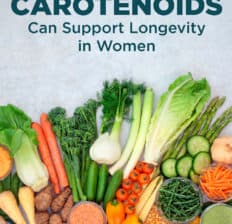This Dr. Axe content is medically reviewed or fact checked to ensure factually accurate information.
With strict editorial sourcing guidelines, we only link to academic research institutions, reputable media sites and, when research is available, medically peer-reviewed studies. Note that the numbers in parentheses (1, 2, etc.) are clickable links to these studies.
The information in our articles is NOT intended to replace a one-on-one relationship with a qualified health care professional and is not intended as medical advice.
This article is based on scientific evidence, written by experts and fact checked by our trained editorial staff. Note that the numbers in parentheses (1, 2, etc.) are clickable links to medically peer-reviewed studies.
Our team includes licensed nutritionists and dietitians, certified health education specialists, as well as certified strength and conditioning specialists, personal trainers and corrective exercise specialists. Our team aims to be not only thorough with its research, but also objective and unbiased.
The information in our articles is NOT intended to replace a one-on-one relationship with a qualified health care professional and is not intended as medical advice.
Macular Carotenoids Support Vision, Brain Health & Longevity
August 11, 2022

Carotenoids are types of antioxidants that are known to contribute to eye and brain health, as well as maintenance of normal vision. They do this by fighting effects of free radical damage, also called oxidative stress.
These antioxidants are found within some of the healthiest foods available to us, such as carrots, kale, sweet potatoes, peppers and papaya. The fat-soluble plant pigments primarily show up in plants as yellow, orange or red pigments, which explains why you can obtain them from plant flowers, leaves and fruits that come in these shades.
A new study demonstrates that adding more superfoods to your diet that provide carotenoids can protect you against age-related decline in mental health and well-being, especially if you’re a woman.
Study Findings: Macular Carotenoids for Women
A 2022 study published in Nutritional Neuroscience found that higher dietary intake of carotenoids appears to be protective against visual and cognitive loss among adult women. Women were the focus of this particular study because women represent about two-thirds of all cases of dementia, as well as 70% of cases of macular degeneration.
Which carotenoids may help lessen the risk of macular degeneration? Lutein and zeaxanthin seem to be especially important, as these specific compounds are found within tissues of the eye and brain. These are among more than 7,000 carotenoids that have been identified.
Both of these nutrients seem to play a role in preventing neurodegenerative diseases, such as age-related macular degeneration (one of the leading causes of blindness) and some forms of dementia.
How do carotenoids prevent macular degeneration?
It’s been found that lutein, zeaxanthin and other carotenoids, such as mesozeaxanthin, have antioxidant and anti-inflammatory effects, including because they block light that damages the retina, as well as oxidative stress that can interfere with normal brain function.
Researchers believe that carotenoids are capable of directly improving function of the eyes and preventing central nervous system degeneration.
Lutein and zeaxanthin specifically have been found to help:
- Reduce glare disability
- Decrease eye discomfort
- Reduce photostress
- Improve chromatic contrast and visual range (e.g., the ability to see through haze)
- Improve visual processing speed
- Help with cognitive functions, including problem solving, memory and executive function (which happens mostly in areas such as the hippocampus and frontal cortex)
- Inhibit the deposition of brain β-amyloids, which are linked to higher risk for cognitive decline
Are carotenoids found in the macula?
Yes, they are the primary pigments found in the eye’s macula, which is located at the center of the retina. The macula is involved in high-acuity daylight vision— plus it helps you see colors and fine details.
How does vitamin A/beta-carotene affect the macula?
Research shows that vitamin A is another nutrient with antioxidant effects that can defend the eyes against cellular damage and age-related diseases. Like carotenoids, beta-carotene has been been reported to reduce the risk of macular degeneration by lowering oxidative stress, specially when it’s consumed from food sources as opposed to supplements.
What It Means
In order to stay mentally sharp into older age and prevent loss of vision, it’s important to consume a variety of antioxidants and phytonutrients on a regular basis.
Carotenoids— as well as other nutrients like vitamin A/beta-carotene, polyphenols, flavonoids and anthocyanin— can help prevent many health conditions tied to aging and an unhealthy lifestyle. For example, eating a diet high in antioxidants is protective against:
- Certain types of cancer
- Heart disease
- Type 2 diabetes
- Neurodegenerative diseases, including Alzheimer’s
- Osteoporosis/bone density loss
One meta-analysis and systematic review found that higher intake of green leafy vegetables — one of the best sources of antioxidants— was strongly linked to reduced all-cause mortality (death from all causes). Increasing your intake of leafy greens by about 100 grams per day (about one to two cups of raw greens) may reduce your risk of death by about 25%.
How to Get More Carotenoids in Diet
Studies suggest that eating antioxidant-rich foods, as opposed to taking supplements, is the best way to boost your intake of protective compounds like caronteorids. That’s because foods contain hundreds of different compounds that work synergistically, unlike supplements, which usually only provide single antioxidants.
The top dietary sources of carotenoids (which also supply you with other protective antioxidants and nutrients) are:
- Winter squash or butternut squash
- Carrots and carrot juice
- Sweet potato
- Leafy greens, like collards, spinach, kale and turnip greens
- Tomatoes
- Pumpkin
- Plantains
- Citrus fruits (grapefruit, oranges and tangerines)
- Cantaloupe
- Red peppers
- Papaya
Conclusion
- Many studies, including one published in 2022, suggest that higher dietary intake of certain antioxidants, such as carotenoids, can help decrease progression of eye-related diseases as well as cognitive decline.
- This seems especially important for adult women who are impacted by these conditions disproportionally.
- How does this work? Carotenoids defend the macula/retina from cellar damage that’s caused by light, oxidative stress and inflammation.
- To add more antioxidants to your diet, eat nutrient-rich foods, including leafy greens, squash, carrots, tomatoes, citrus fruits, tropical fruits like papaya and mango, peppers, and sweet potatoes.




